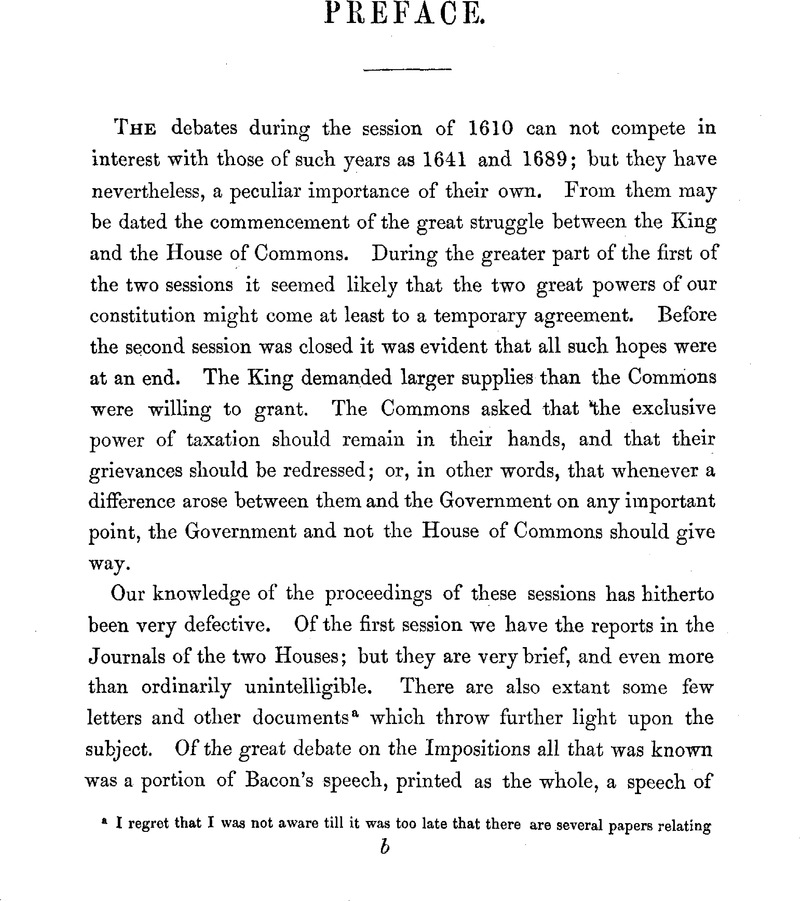No CrossRef data available.
Published online by Cambridge University Press: 23 February 2010

a I regret that I was not aware till it was too late that there are several papers relating to these sessions in Cott. MS. Tit. F. IV. A reference to the most important of them may not be out of place.
Fol. 255. The message delivered on the 11th of May, commanding the Commons not to debate the King's prerogative of levying Impositions.
Fol. 167. The petition against Recusants, presented May 28.
Fol. 244. A full report of Sir J. Doderidge's speech in the debate on Impositions.
Fol. 242. A speech of Dr. Thomas Crompton, member for the University of Oxford, apparently delivered in the same debate, but not mentioned in the notes now published.
Fol. 112. Notes of the proceedings of the fourth session.
Fol. 159. The message delivered by the Speaker on Nov. 24, adjourning the House.
Fol. 139. Notes of the proceedings of the fifth session. The first notice of any importance is as follows
“A Committee appointed to make report to the Howse, by a note to be collected by them, what Bills were dealt in, and did not passe the last Session, and upon their reporte another Committee to consider what Bills to proceed in, and which first and principally, 19 Oct. And upon their report, the Bills ordered to be newe written.”
“The Howse being called, and not above 100 appearing, it was moved it might no where be recorded that there was so great a neglect, and that fynes might be sett, extreated, and levyed. Moved, that the names of the absent might be given to the Kinge, 22 Oct. 1010.”
There is nothing important in the remaining notices, excepting a rather fuller account than that in this volume, of the question as to the right of the King to summon members to attend him, without leave previously granted by the House.
A copy is also given of the order mentioned at p. 139.